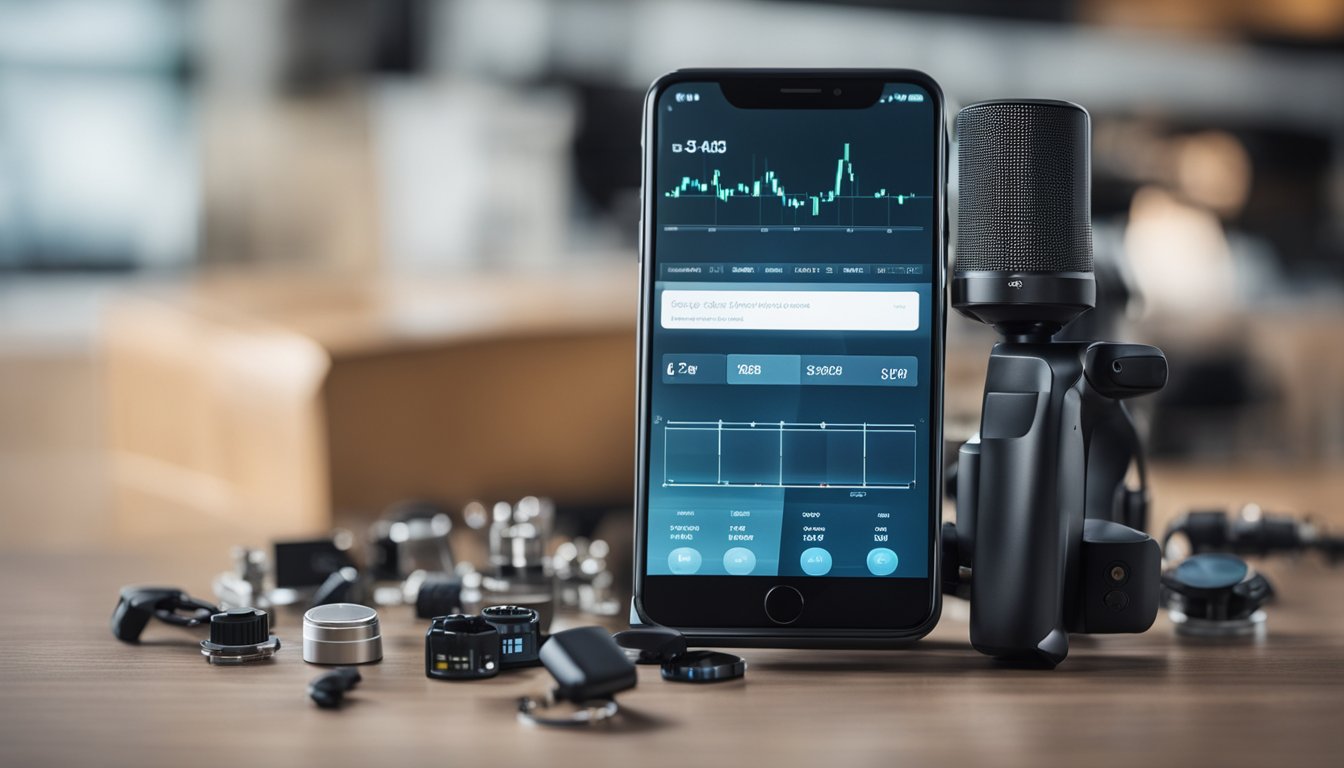
Most Popular Testing Tools for Mobile Apps A Comprehensive Guide
As mobile app usage continues to grow, the need for reliable and efficient mobile testing tools becomes increasingly important. With so many mobile testing tools available in the market, it can be overwhelming for developers to choose the right one f
As mobile app usage continues to grow, the need for reliable and efficient mobile testing tools becomes increasingly important. With so many mobile testing tools available in the market, it can be overwhelming for developers to choose the right one for their needs. In this article, I will provide an overview of some of the most popular testing tools for mobile apps, their key features, and the importance of performance and security in mobile testing.

There are several mobile testing tools available in the market, ranging from free to paid versions. Some of the most popular mobile testing tools include Appium, TestComplete, Kobiton, and Katalon. These tools offer various features such as real device testing, cross-browsing functionality, record-and-replay feature, and integration with CI/CD tools. Choosing the right tool depends on the specific needs of the project, including the type of app, the platform, and the budget.
When it comes to mobile testing, performance and security are critical factors. Poor performance and security vulnerabilities can lead to negative user experiences and impact the reputation of the app. Therefore, it is essential to choose a mobile testing tool that includes performance and security testing features. Additionally, the tool should provide insights into the app's performance and security, allowing developers to identify and fix any issues before releasing the app to the market.
Key Takeaways
- There are various mobile testing tools available in the market, and choosing the right one depends on the specific needs of the project.
- Performance and security are critical factors in mobile testing, and the right tool should include features that address these factors.
- Mobile testing tools provide insights into the app's performance and security, allowing developers to identify and fix any issues before releasing the app to the market.
Overview of Popular Testing Tools

As a mobile app developer, I have worked with various testing tools to ensure that my apps are functional and user-friendly. In this section, I will provide an overview of some of the most popular testing tools that I have used or heard of.
Appium
Appium is an open-source tool that allows developers to automate tests for both iOS and Android platforms. It supports a wide range of programming languages and frameworks, making it a versatile tool for developers. With Appium, developers can write tests using their preferred language and run them on real devices or emulators.
Kobiton
Kobiton is a cloud-based mobile testing platform that allows developers to test their apps on real devices. It offers a range of features such as manual and automated testing, device lab management, and integration with popular testing frameworks. With Kobiton, developers can test their apps on a wide range of devices and operating systems.
Selendroid
Selendroid is an open-source testing framework for Android apps. It allows developers to write tests using Selenium WebDriver API and run them on real devices or emulators. Selendroid supports a wide range of Android versions and devices, making it a popular choice for developers.
Calabash
Calabash is an open-source testing framework that allows developers to write tests using Ruby programming language. It supports both iOS and Android platforms and can be integrated with popular testing frameworks such as Cucumber. With Calabash, developers can write tests that simulate user interactions and validate the app's behavior.
Ranorex
Ranorex is a commercial testing tool that allows developers to automate tests for desktop, web, and mobile apps. It offers a range of features such as test recording, test execution, and reporting. With Ranorex, developers can write tests using a range of programming languages and frameworks.
TestComplete
TestComplete is a commercial testing tool that allows developers to automate tests for desktop, web, and mobile apps. It offers a range of features such as test recording, test execution, and reporting. With TestComplete, developers can write tests using a range of programming languages and frameworks.
Perfecto
Perfecto is a cloud-based testing platform that allows developers to test their apps on real devices. It offers a range of features such as manual and automated testing, device lab management, and integration with popular testing frameworks. With Perfecto, developers can test their apps on a wide range of devices and operating systems.
BrowserStack
BrowserStack is a cloud-based testing platform that allows developers to test their apps on real devices. It offers a range of features such as manual and automated testing, device lab management, and integration with popular testing frameworks. With BrowserStack, developers can test their apps on a wide range of devices and operating systems.
LambdaTest
LambdaTest is a cloud-based testing platform that allows developers to test their apps on real devices. It offers a range of features such as manual and automated testing, device lab management, and integration with popular testing frameworks. With LambdaTest, developers can test their apps on a wide range of devices and operating systems.
TestRigor
TestRigor is an AI-powered testing platform that allows developers to automate tests for web and mobile apps. It offers a range of features such as test recording, test execution, and reporting. With TestRigor, developers can write tests using natural language and validate the app's behavior.
In conclusion, there are various testing tools available for mobile app developers. The choice of tool depends on the developer's preferences, the app's requirements, and the available resources.
Key Features of Ideal Mobile Testing Tools

As a software tester, I have worked with various mobile testing tools and have found some key features that are essential for any ideal mobile testing tool. Here are some of the most important ones:
Automation Capabilities
Automation testing is an essential feature of any mobile testing tool. It saves time and effort by automating repetitive tasks and provides more accurate results. An ideal mobile testing tool should have automation capabilities that allow for the creation and execution of automated test scripts. It should also support multiple programming languages and frameworks.
Cross-Platform Testing
With the increasing use of multiple mobile platforms, it is essential to have a mobile testing tool that supports cross-platform testing. An ideal mobile testing tool should be able to test both Android and iOS applications. It should also support different versions of these platforms and provide a seamless testing experience across all devices.
Integration with Other Tools
An ideal mobile testing tool should be able to integrate with other tools like JIRA, Jenkins, Travis CI, Bamboo, and Azure DevOps. This integration allows for continuous testing and provides a streamlined testing process. It should also support integration with no-code automation tools for those who are not proficient in programming.
Pricing and Free Trial Options
Pricing is an important consideration when selecting a mobile testing tool. An ideal mobile testing tool should have flexible pricing options and provide a free trial period to test the tool's features. It should also provide transparent pricing information and not have any hidden costs.
In conclusion, an ideal mobile testing tool should have automation capabilities, cross-platform testing, integration with other tools, and flexible pricing options. By considering these key features, you can select the right mobile testing tool for your testing needs.
Importance of Performance and Security in Mobile Testing

As a mobile app developer, I understand the importance of both performance and security testing in the development process. Performance testing is essential to ensure that the app runs smoothly and efficiently, while security testing is necessary to protect user data and prevent any potential security breaches.
Performance Testing
Performance testing is crucial for mobile apps as users expect fast and responsive apps. Performance issues such as slow loading times, crashes, and freezes can lead to a negative user experience and ultimately result in the app being uninstalled. Therefore, it is important to conduct performance testing to identify and fix any issues before the app is released.
There are various performance testing tools available that can help in identifying performance issues. AI-powered testing tools can also be used to simulate real-world scenarios and identify performance bottlenecks. By conducting performance testing, developers can ensure that their app is scalable and can handle a large number of users without any performance issues.
Security Testing
Security testing is equally important as performance testing as mobile apps often handle sensitive user data. Any security breaches can lead to a loss of user trust and can have severe consequences for both the users and the app developer. Therefore, it is crucial to conduct security testing to identify and fix any potential security vulnerabilities.
There are various security testing tools available that can help in identifying security vulnerabilities. These tools can scan the app's code and identify any potential security issues. Additionally, manual testing can also be conducted to identify any security vulnerabilities that may have been missed by the automated tools.
In conclusion, both performance and security testing are essential in the development process of mobile apps. By conducting performance testing, developers can ensure that their app is scalable and can handle a large number of users without any performance issues. Similarly, security testing can help identify and fix any potential security vulnerabilities, ensuring that user data is protected.
The Role of AI and Programming Languages in Mobile Testing

As mobile applications become more complex, testing them manually becomes increasingly difficult and time-consuming. That's where AI-powered testing comes in. By using machine learning algorithms, AI-powered testing tools can identify and address potential issues more quickly and accurately than human testers.
AI-Powered Testing
One popular AI-powered testing tool is Aqua Cloud's AI-powered TMS. This tool uses machine learning algorithms to analyze real-world user interactions and identify potential issues. It can also generate test cases automatically, saving time and reducing the risk of human error.
Other AI-powered testing tools include Codementor and Katalon. These tools use machine learning algorithms to automate test cases, reducing the need for human involvement in the testing process.
Support for Various Programming Languages
When it comes to mobile app testing, choosing the right programming language is critical. Java is the most common programming language for mobile app testing, with a wide range of frameworks, plugins, and other resources available for testers. Kotlin, Swift, and Objective-C are also popular choices.
When selecting a programming language for mobile app testing, it's important to consider community support. The more support a language has, the easier it will be to find resources and solutions to potential issues.
In addition to programming languages, it's also important to consider the JSON Wire Protocol. This protocol is used for communication between the test automation framework and the mobile device, and can impact the effectiveness and accuracy of the testing process.
Overall, AI-powered testing and support for various programming languages are critical components of mobile app testing. By leveraging these tools and technologies, testers can identify and address potential issues more quickly and accurately, ultimately improving the quality of the app and the user experience.
Frequently Asked Questions

What are some popular cloud-based mobile testing tools?
Some popular cloud-based mobile testing tools are Sauce Labs, BrowserStack, and Firebase Test Lab. These tools provide a scalable and cost-effective solution for testing mobile applications on a variety of devices and platforms.
Which mobile automation testing tools are commonly used for iOS and Android?
Some commonly used mobile automation testing tools for iOS and Android are Appium, XCUITest, Espresso, and UI Automator. These tools allow for the creation of automated test scripts that can be executed on real devices or emulators.
What are some free mobile app testing tools?
Some free mobile app testing tools are Selendroid, Robotium, and Calabash. These tools offer basic testing capabilities such as UI testing, functional testing, and performance testing.
Which tool is most effective for Android app testing?
The most effective tool for Android app testing depends on the specific needs of the project. However, Espresso and UI Automator are popular choices for testing Android applications due to their ease of use and ability to test the UI and functionality of the app.
What are some effective strategies for mobile application testing?
Some effective strategies for mobile application testing include creating a comprehensive test plan, prioritizing testing based on risk, using a combination of manual and automated testing, testing on real devices, and testing in different network conditions.
How can I ensure quality assurance when testing my mobile app?
To ensure quality assurance when testing a mobile app, it is important to have a clear understanding of the requirements and objectives of the app, create a comprehensive test plan, use a combination of manual and automated testing, test on real devices, and continuously monitor and improve the testing process. Additionally, it is important to involve stakeholders and gather feedback throughout the testing process to ensure that the app meets the needs and expectations of the users.




